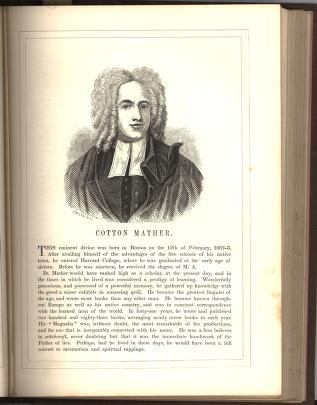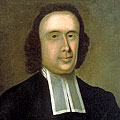
Almost 400,000 people left England for British colonies in America. Among them were thousands of Puritans determined to establish a godly colony in the "New World." Like other colonists, Puritan settlers brought with them distinctly English economic, cultural and religious assumptions. They believed they would find in New England the economic and political security they craved but could not attain in England.
In Europe, a large and growing population kept wage rates low and land was at a costly premium. The opposite was true in the colonies; Iabor, not land, was in short supply. Building homes and establishing farms required intensive and often backbreaking toil. Indentured servants, and later, slaves met the insatiable demand for labor in the Chesapeake region of Virginia and Maryland. Slavery existed in New England as well, but landscape, settlement patterns and the economy prevented slavery from solving the chronic labor shortage there. New Englanders evolved an intricate web of interdependence to meet the demand for labor, working for neighbors who sold their labor in return.
Cotton Mather, from "Illustrated American Biography," 1853
See the Digital Collection for further information.
|








